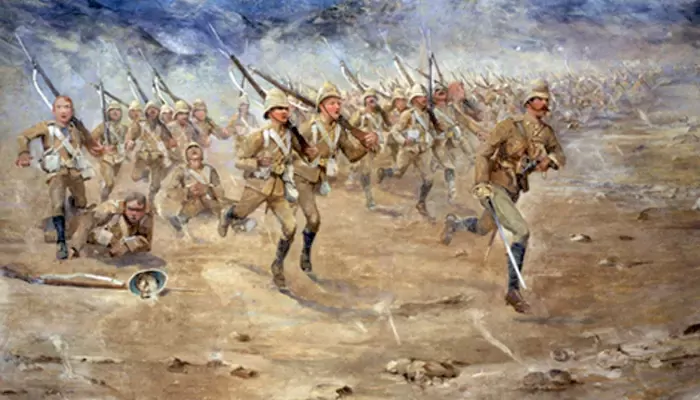
Before 1857, before the revolts in the plains — there was Tirot Sing
The early 19th century unfolded quite differently in the lush hills of present-day Meghalaya than in the grand cities of colonial India. Far from the plains and presidencies, the Khasi Hills were governed by their own chiefs, or Syiems, who relied on community councils and tradition. Among them stood one man who would surpass the rest—Tirot Sing, the Syiem of Nongkhlaw.
When Tirot assumed leadership in 1820, British expansion in the East was accelerating. Assam had fallen within the Company’s orbit. Their next aim is to construct a road connecting the Brahmaputra valley to the Bengal plains. The Khasi Hills lay in between — and so did Tirot.
David Scott, a shrewd British political agent, approached Tirot with charm and promises. The Company wanted to build a road and needed passage through the Khasi Hills. Tirot agreed, but only after consulting his Dorbar, the traditional council. The condition was clear — no interference in Khasi affairs.
But soon after, taxes were imposed, promises were broken, and Tirot saw through the deception. Realising he had been misled, he acted. On 4 April 1829, Tirot Sing struck back — launching an attack on British forces at Nongkhlaw. It would go down as the first recorded armed uprising against British rule in Northeast India.
Tirot’s men did not march with muskets or heavy guns. They fought with bows, spears, and an unmatched knowledge of the hills. Employing guerrilla tactics, the Khasi warriors caught British officers off guard. The attack sent shockwaves through the colonial machinery. Panic spread to British outposts in Assam and Bengal. Emergency escape boats were kept ready at Guwahati.
The British aimed to capture Tirot. But he moved with the terrain, slipping through forests, hiding in caves, and rallying more Syiems to his cause. His resistance was brave, organised, and widespread.

Despite early victories, the tide turned. Some of his own — even from his family — betrayed him. A trusted few revealed his hideout near Elephant Falls, Shillong. On 13 January 1833, Tirot was captured by British officer Captain Inglis at Lum Mardiang.
The British attempted to persuade him to surrender. They claimed that if he acknowledged their rule, his life would be spared. But Tirot remained resolute. He refused to yield. For him, the value of life was not worth the cost of freedom.
Tirot Sing was sent to Dacca Jail (now Dhaka, Bangladesh). There, in a distant cell, far from his hills and people, he breathed his last on 17 July 1835. However, his name never faded.
While national history often highlights major revolts from the Gangetic plains or southern citadels, stories like Tirot’s remind us that resistance arose from every corner — even the mist-covered cliffs of the Khasi Hills.
His uprising occurred decades before 1857. His courage rivalled that of generals and revolutionaries from other parts of India. And yet, Tirot Sing rarely finds space in textbooks or speeches.
Today, as India seeks to reclaim its diverse past, remembering Tirot Sing isn’t just about honour — it’s about justice. Like Lachit Borphukan in Assam or Rani Durgavati in central India, Tirot was a regional hero with a national spirit.
He didn’t lead armies with flags. He didn’t write petitions. He simply stood up — and fought back.